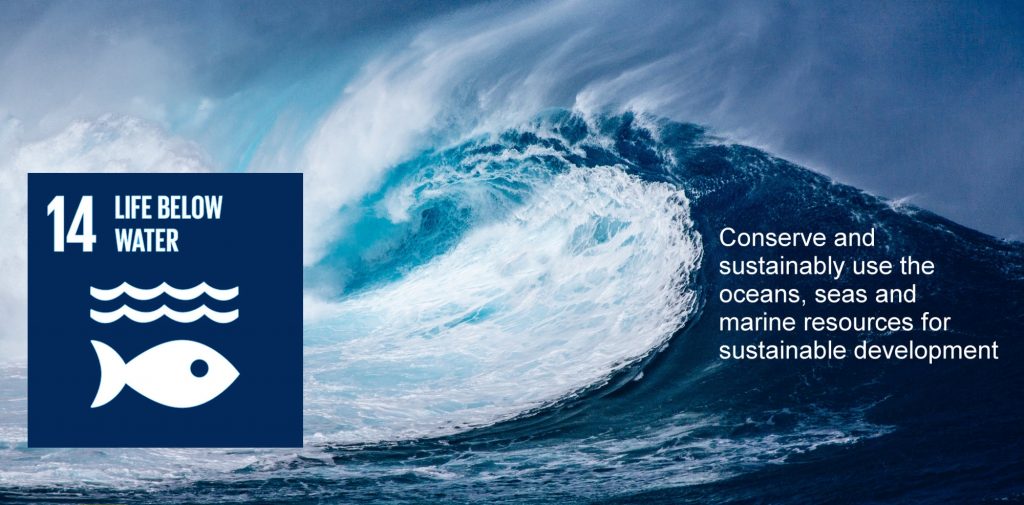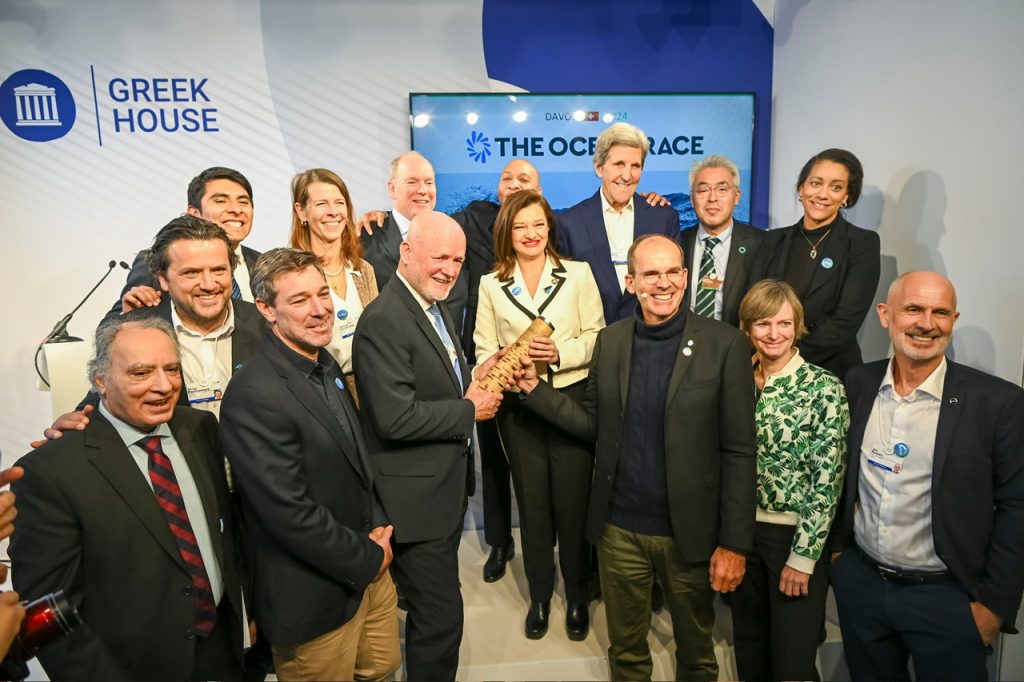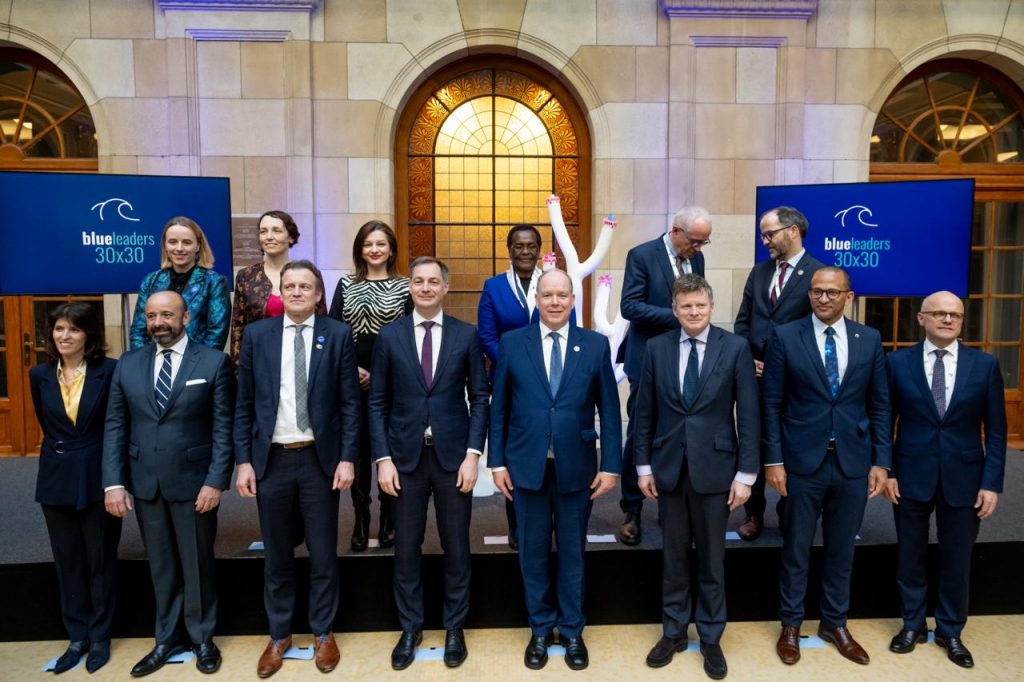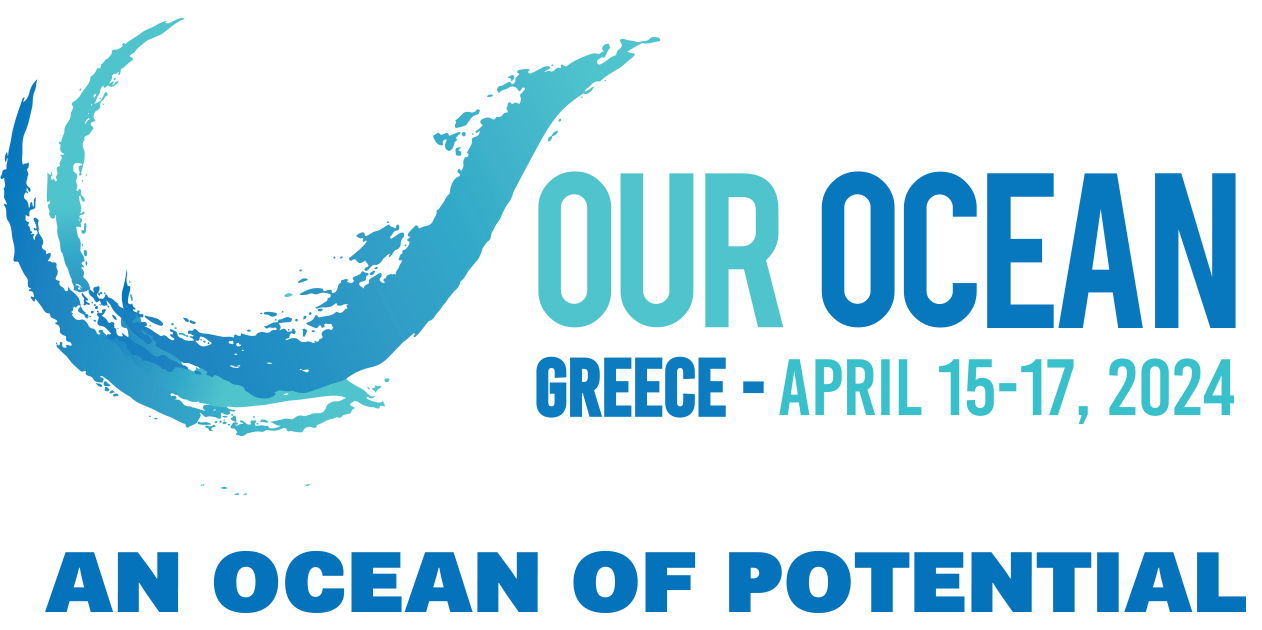The Our Ocean Conference (OOC) is a fairly new initiative, started in 2014 by the US Department of State and the then Secretary of State John Kerry. The Conference is held in a different country every year and gathers governments, intergovernmental organizations, academia, the private sector, and NGOs that share a common vision to protect our oceans and fill in the gaps in what is known as ‘global ocean governance’.
What does it mean for Greece that the prestigious 9th Our Ocean Conference (OOC-9) is being held here?
Greece is indeed proud to host the Our Ocean Conference this year, in April 15-17, 2024. Hosting this prestigious Conference highlights Greece’s strong ambition and dedication to the sustainable development of the oceans, the blue economy and the protection of the marine biological resources, the health of the oceans, and the protection of life on earth.
Prime Minister of Greece, Mr. Kyriakos Mitsotakis, has shown real leadership in this regard. Under his leadership, Greece has allocated more than 38% of the national RRF funds to Green and Blue Economy projects. Additionally, it has already enacted the first national climate law and established the necessary legislative framework for transitioning to decarbonization and advancing the blue economy. Greece, also, has a huge wind and solar potential and the highest potential in the Eastern Mediterranean in terms of wind quality in the field of offshore wind parks, which is a national target of high importance.
The government has also taken significant initiatives, such as the development of green shipping and the GR-eco Islands initiative, which aims to promote a comprehensive green transformation of small islands, including areas such as the use of renewables, energy efficiency, sustainable waste and water management, zero-emission mobility, and the “greening” of tourism.
In this regard, Greece will activate the Decarbonization Fund of the islands, estimated that have up to 2 billion-euros from the carbon emission rights, which will accelerate the green transition of our islands.
With Greece being a leading maritime nation, there will be a heighted emphasis on green shipping this year, conveying the Greek Prime Minister’s commitment to this sector also. Overall, Greece aspires to lead the way in the rising sectors of blue economy, such as RES and pharmaceuticals, or nature-based projects.
As the coordinator of the 9th Our Ocean Conference 2024 and Chair of the Environment Committee of the Hellenic Parliament, your expertise in environmental matters is invaluable. Given your roles, could you shed light on the most pressing environmental challenges confronting our oceans and seas today?
Over the past few decades, marine biodiversity has been depleting at an alarming rate and phenomena, such as ocean acidification and eutrophication, minimize the ocean’s ability to both absorb CO2 and generate the oxygen we need. Marine biodiversity is under threat and so is climate, food security and blue economy.
Some of the most pressing environmental challenges facing our oceans today include rising sea temperatures, ocean acidification resulting from increased CO2 absorption, and marine pollution caused by plastic waste, oil spills, chemical runoff, and industrial discharge. These issues pose severe threats to marine life, habitats, and water quality. Additionally, unsustainable fishing practices like overfishing and destructive fishing methods contribute to depleted fish stocks, disrupt marine food chains, and harm overall biodiversity. Coastal development, habitat degradation from pollution and fishing activities, and the destruction of critical ecosystems such as coral reefs and mangroves further jeopardize marine habitats and dependent species.
From the acidification of waters to pollution, oceans are faced with a multitude of threats which endanger both nature and humans. Addressing these challenges requires coordinated global efforts, including sustainable resource management, pollution prevention and cleanup measures, climate change mitigation and adaptation strategies, stronger regulations, and conservation of critical marine habitats and species. Collaboration among governments, scientific communities, businesses, and civil society is crucial to safeguarding the health and resilience of our oceans for current and future generations.
What are the priorities of the 9th Our Ocean Conference (OOC-9)?
In light of the aforementioned environmental challenges that the oceans face today, the OOC raises ambition for action and monetary resources across six areas of action that the Conference addresses annually. These key priorities are Marine Protected Areas; Sustainable Blue Economy; Climate Ocean Nexus; Maritime security; Sustainable fisheries and marine pollution. The 9th Our Ocean Conference aims to raise more commitments to the following 4 cross-cutting priorities that Greece, as the host country, has identified: (i) Sustainable tourism in coastal areas and islands (ii) Green shipping (iii) Reduction of marine plastic and microplastic pollution (iv) The green transition. These priorities address the pressing environmental challenges faced by oceans today.
This year’s conference will cover a diverse range of issues, while it is anticipated to host 8 plenary panels, 10 lighthouse events, and 40 side events.
A key outcome of each OOC is the announcement of concrete commitments by governments and non-state actors to protect ocean health and security, which are voluntary, measurable, impactful and with a clear time frame. How are the gathering of commitments shaping up for the Conference? Can you give us a feeling for the areas that countries and actors are the most willing to make commitments for and an example of such commitment?
Indeed, the Our Ocean legacy aims to establish a framework for ongoing ocean collaboration, innovation, and action on a global scale. From governments and civil society organizations to the private sector, active involvement is sought primarily through the submission of Voluntary Commitments. This extensive mobilization is expected to be catalytic for identifying innovative solutions and supporting ocean science and funding, which will constitute key outcomes for the 3rd UNOC, as well. In order to pave the way for transformative action for the protection and sustainable management of seas and oceans, globally, in support of SDG 14, so far, the Conference has managed to gather more than 2160 commitments worth almost US$ 128 billion. 50% have been already accomplished. For this year’s Conference, both countries and the private sector have shown willingness to make commitments, but also to initiate actions, establish regulatory frameworks and exchange best practices and know-how. These efforts may not be financially measurable but are equally important for protecting marine habitats.

Greece itself has already taken bold and concrete measures in this direction, such as the establishment of concrete conservation targets for the marine protected areas and the ambitious decarbonization project for the small islands. We will announce, among other things, the establishment of two new Marine Protected Areas reaching in this way our 30X30 goal, many green ports, a center of excellence for the sustainable tourism in the Mediterranean and other important tools for the benefit of our marine environment.
An important aspect of the OOC is to achieve a sustainable blue economy. Could you please elaborate on its significance?
Sustainable Blue Economy is about ocean protection, technological progress, innovation, job creation. The industries realize the need for transition. The process is ongoing and we need a more holistic view on how we envision the blue economy. We have to develop win-win initiatives that will contribute to the creation of more jobs and sustainable growth and also tackle some of the most important stresses the ocean undergone these days, such as ocean acidification, biodiversity loss and plastic pollution. Greece has one of the five biggest blue economy sectors in the EU. Shipping, sustainable tourism and fishing already employ hundreds of people and offer a vast array of investment opportunities.
An implied priority of each OOC is improving ocean literacy, which is the understanding of our individual and collective impact on the Ocean and its impact on our lives and wellbeing. This year Greece plans to organize a youth summit the day before the main conference. Can you tell us more about the objectives of this and conference and how it will contribute to ocean literacy among the youth?
The program will begin on April 15, a day dedicated to Youth, Art and the Welcoming of the official delegations. The Young Ocean Leaders Program will encompass themes that relate to: Education (at all levels with a special emphasis on the tertiary education) – Employment (Upskilling-reskilling for the shipping and marine protection sectors) – innovation. In addition, the 1st Our Ocean Film Festival will be held, where more than 20 screenwriters, directors, and actors have submitted excellent pieces of their work, including some new releases. The 1st Our Ocean Film Festival is open to the public, so that everybody can be part of the dialogue to safeguard our oceans.
And finally, could you provide insights into the environmental context surrounding the occurrence of OOC-9?
It is noteworthy that OOC-9 will be the first Our Ocean Conference that will convene after the adoption of the Agreement on the Conservation and Sustainable Use of Marine Biological Diversity of Areas Beyond National Jurisdiction under the UN Convention on the Law of the Sea (the “BBNJ” Treaty) covering more than two-thirds of the oceans. OCC-9 will be a suitable venue to discuss both need to further ratify the Agreement and its means of implementation.
Further, the 9th Our Ocean Conference is expected to make a direct contribution to the upcoming ocean-related high-level events at the UN level, namely the High-Level Preparatory Event of the 3rd UN Ocean Conference (UNOC) to be held in Costa Rica in June 2024, and most importantly to the 3rd UNOC itself to be held in Nice, France, in June 2025.
 Dr. Dionysia-Theodora Avgerinopoulou is a leading politician in Environmental and Climate Law and Policy at the Mediterranean Region. She currently serves as the Chair of the Parliamentary Committee on Environmental Protection and a Member of the Hellenic Parliament.
Dr. Dionysia-Theodora Avgerinopoulou is a leading politician in Environmental and Climate Law and Policy at the Mediterranean Region. She currently serves as the Chair of the Parliamentary Committee on Environmental Protection and a Member of the Hellenic Parliament.

Greek House, Davos

Blue Ocean Leaders , Belgium 2024



